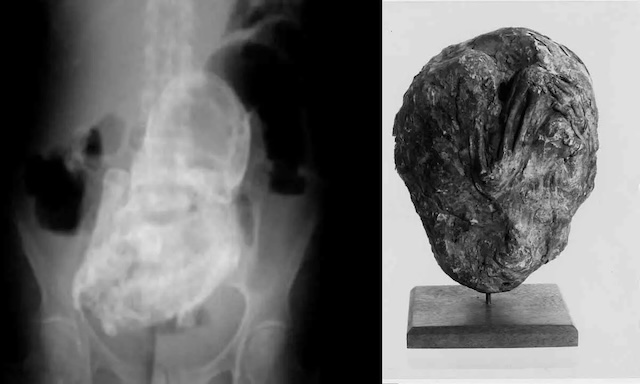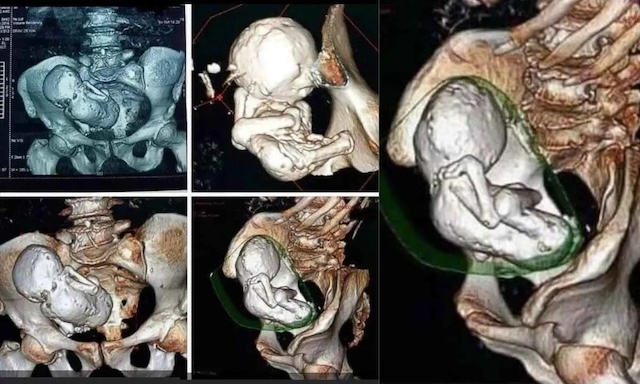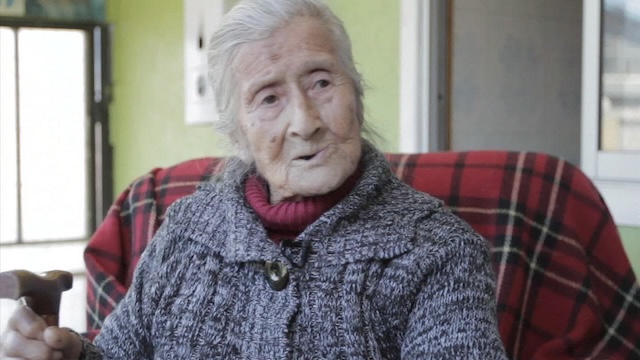In an extraordinary and rare medical case, doctors in Chile were stunned when they discovered a 60-year-old calcified fetus, often referred to as a “stone baby,” inside a 91-year-old woman. Estela Meléndez, a resident of the coastal village of La Boca, had carried this mummified fetus within her body for six decades without knowing it. This bizarre discovery came to light after an X-ray following a minor accident revealed the presence of what appeared to be a tumor, only for the diagnosis to take a shocking turn.
A Mummified Baby Resting For 60 Years Inside The Body!
It all started when Estela had a simple accident. After falling, she was taken to the hospital where an X-ray was ordered to examine her injuries. What initially appeared to be a tumor inside her abdomen turned out to be something far more mysterious. Doctors soon realized that the hard mass was not a tumor at all, but a calcified fetus—a baby that had been mummified inside her for over 60 years!
This mummified fetus was the result of an ectopic pregnancy, a condition in which the fetus develops outside the uterus. In Estela’s case, the pregnancy likely occurred in her abdominal cavity. Because the fetus could not be absorbed by her body, it calcified over time, hardening into a stone-like state. Despite the shocking discovery, doctors decided that surgery to remove the lithopedion would be too dangerous given Estela’s advanced age, and it was left undisturbed.

An X-ray image of the calcified fetus, known as a “stone baby,” found inside Estela Meléndez after she had an accidental fall, revealing a medical mystery within
Understanding Lithopedion: The Stone Baby Syndrome
Lithopedion, or stone baby syndrome, is an extremely rare medical condition. The term derives from the Greek words “litho,” meaning stone, and “pedion,” meaning child. This condition occurs when a fetus dies during an abdominal pregnancy and, instead of being reabsorbed by the mother’s body, undergoes calcification. The calcified tissue acts as a defense mechanism, protecting the mother from infection caused by the dead fetus.
There have been fewer than 300 documented cases of lithopedion throughout history, making Estela’s story all the more remarkable. In most instances, the calcified fetus is only discovered by accident, as was the case with Estela. Typically, the condition causes little to no symptoms, allowing the mother to live for years without knowing a mummified fetus is inside her body.

3D scans showcasing the intricate details of the 60-year-old mummified fetus inside the body of Estela Meléndez, preserved naturally by her body for decades
The Human Body’s Natural Defenses and Estela’s Reflections
Estela’s life was not only changed by this unexpected medical discovery but also by the emotional implications it carried. She had been married to her late husband, Manuel González, for over 70 years, and together they had dreamed of having children. Sadly, they never had the family they longed for. Learning that there had been a baby inside her all these years brought a deep emotional reflection for Estela.
“We suffered tremendously because of this reason,” she recalled when reflecting on the unfulfilled desire for a child. The discovery of the mummified fetus brought closure to a chapter of her life she thought had been left behind long ago, but it also stirred emotions of loss and longing.
Despite the shock of this revelation, Estela chose to focus on the long, fulfilling life she had lived with her husband, and the love they shared.

A portrait of Estela Meléndez, whose remarkable story of carrying a stone baby for 60 years has captured the attention of the medical world and the public alike
Conclusion
The case of Estela Meléndez and the 60-year-old mummified fetus encapsulates both the wonders and mysteries of human biology. The phenomenon of lithopedion serves as a testament to the incredible ways in which the body can adapt to unusual circumstances and protect itself. While this rare condition leaves many unanswered questions, it also offers a unique glimpse into the resilience of the human spirit. Estela’s story, filled with love, loss, and surprise, will remain an enduring chapter in medical history, reminding us of the profound mysteries that can exist within us all.